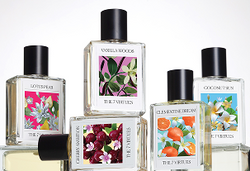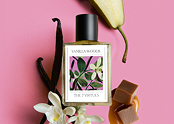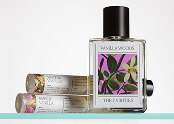Journées pour les filles et la lutte pour des produits menstruels gratuits
Et comment vous pouvez mettre en œuvre la cause des Journées pour les filles dans votre propre communauté.

La semaine dernière, nous avons évoqué la mission de notre marque visant à mettre fin à la précarité menstruelle en nous associant à Days for Girls. Nous souhaitons approfondir leur cause et discuter des changements que vous pouvez apporter pour promouvoir l'égalité menstruelle dans votre communauté.
Lorsque les femmes et les filles bénéficient de droits reproductifs et d'une autonomie quant à leur corps, elles bénéficient d'une meilleure éducation et peuvent ainsi s'appuyer sur leur éducation pour devenir des actrices du changement. Tel est l'objectif de Days for Girls, une organisation non gouvernementale primée.
« Days for Girls s’efforce d’éliminer la stigmatisation et les limitations associées aux menstruations afin que les femmes et les filles bénéficient d’une meilleure santé, d’une meilleure éducation et de meilleurs moyens de subsistance », indique leur site Web .
Barb Stegemann, fondatrice de 7V, discute avec Celeste Mergens, fondatrice de Days for Girls, le 3 mars 2022.
En 2018, le Groupe de la Banque mondiale a signalé qu’« au moins 500 millions de femmes et de filles dans le monde ne disposent pas d’installations adéquates pour la gestion de l’hygiène menstruelle ».
« De plus en plus de preuves montrent que l’incapacité des filles à gérer leur hygiène menstruelle à l’école entraîne un absentéisme scolaire, qui à son tour a de graves conséquences économiques sur leur vie et sur le pays », écrit la Banque mondiale.
Nous avons besoin des femmes aux tables de décision. Le manque d'accès à l'hygiène menstruelle fait des menstruations un obstacle qui empêche des millions de femmes et de filles d'accéder à ces services. Days for Girls s'attaque à cet obstacle en fournissant des produits d'hygiène menstruelle et en les sensibilisant à la santé, ainsi qu'en menant des actions de plaidoyer pour la santé menstruelle.
Les efforts incroyables déployés par Days for Girls peuvent se traduire par la manière dont vous contribuez à faire progresser l’équité menstruelle dans votre propre communauté.
1. Produits menstruelsDays for Girls a créé sa propre serviette hygiénique et sa coupe menstruelle DfG, incluses dans les kits menstruels distribués. Des protections hygiéniques sûres et hygiéniques sont essentielles à la santé physique et au bien-être des femmes menstruées. « Lorsque les filles et les femmes ont accès à des protections hygiéniques sûres et abordables pour gérer leurs règles », écrit le Groupe de la Banque mondiale , « elles réduisent leur risque d'infection. » Les kits menstruels DfG comprennent également du savon, des sous-vêtements, un gant de toilette et des protège-slips. Lorsque les femmes et les filles ont accès à ces produits, elles peuvent passer plus de temps à apprendre en classe, à jouer avec leurs amies et à être en famille.
Dans nos communautés, nous pouvons contribuer à distribuer des protections menstruelles gratuites dans les lieux que nous fréquentons. Étudiants de niveau postsecondaire : établissez un budget avec le syndicat de votre établissement pour l’achat de protections menstruelles. Enseignants : soulevez la nécessité de protections menstruelles accessibles lors de votre prochaine réunion du personnel. De petits gestes mènent à de grands changements. Fournir des protections menstruelles aux femmes et aux filles peut les aider à atteindre leurs objectifs tout en prenant soin de leur santé menstruelle.
2. ÉducationLes kits menstruels DfG sont également accompagnés d' une éducation à la santé . L'éducation à la santé menstruelle de Days for Girls apprend aux femmes et aux filles à utiliser leurs kits menstruels, renforce leur confiance dans la gestion de leurs règles et permet aux communautés de considérer les règles de manière positive, mettant fin à la stigmatisation et à la honte liées aux menstruations et à la puberté.
Par exemple, notre parfum Lotus Pear s'est associé à Days for Girls pour lutter contre les obstacles menstruels dans le district de Kailali, au Népal. À Kailali, la stigmatisation et le tabou menstruels sont forts : bien qu'illégale au Népal, la pratique du Chaupadi Pratha (qui consiste à traiter les femmes comme impures et à les forcer à vivre dans des huttes en terre pendant leurs règles) est encore courante. Days for Girls s'est associé à des enseignants et à des administrateurs de Kailali pour dispenser une éducation holistique à la santé menstruelle aux élèves, filles et garçons. Cette éducation a non seulement aidé les jeunes filles, mais a également souligné l'importance de l'alliance masculine pour l'égalité menstruelle. Pour atteindre les adultes de la communauté, DfG a collaboré avec des cercles de femmes – des cercles d'épargne féminins locaux présents dans de nombreux villages népalais – afin de dispenser une éducation holistique à la santé menstruelle et d'ouvrir le dialogue sur la stigmatisation, notamment la pratique du Chaupadi.
Vous pouvez également lutter contre la stigmatisation liée aux règles dans votre communauté. C'est essentiel pour aider les femmes et les filles à se sentir en sécurité et fières de leurs règles. Parler ouvertement des règles et de l'importance de l'autonomie corporelle des femmes peut aider les femmes menstruées à se sentir vues et entendues. L'éducation est un outil puissant : en vous renseignant sur l'équité menstruelle, vous pouvez faire le premier pas vers ces conversations. Se renseigner sur le mouvement est un excellent point de départ. Nous recommandons « The Power of Days: A Story of Resilience, Dignity, and the Fight for Women's Equity » de Celeste Mergens, fondatrice de Days for Girls. « Period Gone Public: Taking a Stand for Menstrual Equity » de Jennifer Weiss-Wolf est également une lecture extrêmement éclairante sur la manière de faire entendre notre voix sur ce sujet.
3. PolitiqueDays for Girls mène également des actions de plaidoyer et de sensibilisation pour promouvoir l'équité menstruelle. Parmi ses réalisations en matière de plaidoyer , on peut citer le lancement de la Coalition sud-africaine pour la gestion de la santé menstruelle (SACMHM) en mars 2020, l'amélioration de l'accès public aux protections hygiéniques dans l'État du Maryland et le pilotage de partenariats éducatifs au Cambodge.
Si vous souhaitez susciter le changement autour de vous, DfG a créé un Manuel de plaidoyer bénévole , qui peut vous aider à décider par où commencer votre démarche de plaidoyer pour l'équité menstruelle. Si vous êtes déjà impliqué au sein du gouvernement, par exemple au sein de votre conseil municipal, c'est l'occasion idéale de devenir un acteur du changement. Rejoindre votre conseil municipal à cette cause est également une excellente idée. Chez The 7 Virtues, notre objectif est de rendre les protections menstruelles gratuites partout au Canada, comme l'Écosse l'a fait il y a quelques années. L'accès à des protections menstruelles gratuites est un droit, pas un privilège.
Nous tenons à témoigner notre admiration pour les Journées des Filles, qui sont des leaders et des actrices du changement. Chez The 7 Virtues, nous soutenons leur cause et vous invitons à faire de même. Nous devons nous mobiliser pour l'égalité menstruelle. Ensemble, nous pouvons avoir un impact et aider les femmes et les filles du monde entier.




